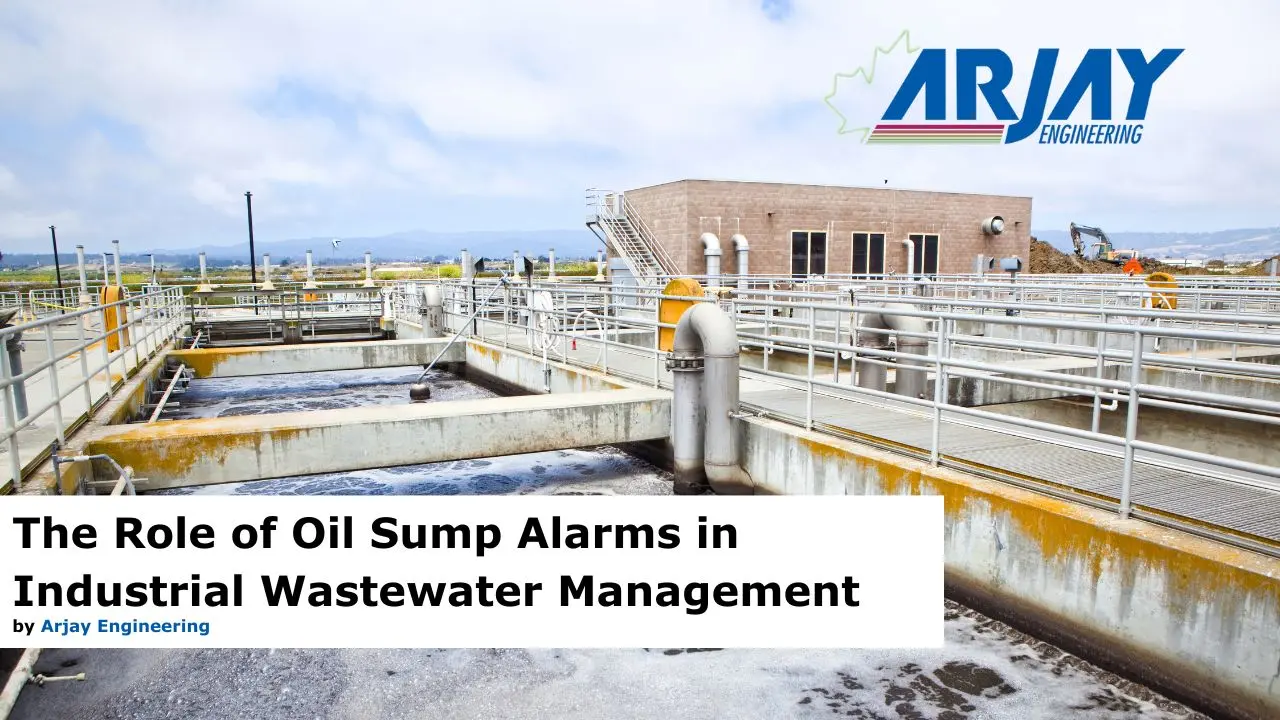Industrial wastewater management is important for the environment. Wastewater Oil Sump Alarms help in this process by detecting oil in sumps. These alarms help industries quickly spot and address potential problems, ensuring cleaner water.
Precision and Reliability: How Oil Sump Alarms Operate
Wastewater Oil Sump Alarms work by consistently monitoring oil levels and detecting any irregularities. The alarm is triggered when the oil levels surpass the predetermined limit, facilitating immediate intervention. This ensures that industries can address contaminations promptly, reducing the risk of extensive environmental damage and ensuring regulatory compliance.
Arjay Engineering’s Floating Oil Spill Alarm: 2852-HCF
The 2852-HCF Floating Oil Spill Alarm is a dependable tool designed to monitor sumps, tanks, and lagoons for oil spills. Using a hydrocarbon float sensor, it detects oil-on-water separation, ensuring that spills or leaks are promptly identified. The device’s floating design adapts to changing water levels, quickly alerting operators or activating pumps and valves when oil accumulates, ensuring efficient spill management.
The Benefits of Using Oil Sump Alarms
Adopting Wastewater Oil Sump Alarms has several advantages:
- Prompt Detection: They enable early detection of oil in wastewater, allowing for immediate action.
- Compliance Management: They assist industries in maintaining adherence to environmental regulations and standards.
- Cost-Effective: By preventing extensive contamination, they help in reducing cleanup and damage control costs.
Advancements and Future Prospects
The continuous advancements in technology are leading to the development of more sophisticated and efficient Wastewater Oil Sump Alarms. The integration of advanced analytics and enhanced detection capabilities promises improved wastewater management, allowing industries to operate more sustainably and responsibly.
Widespread Applications: Industries Benefiting from Oil Sump Alarms
The implementation of these alarms is becoming increasingly prevalent in various industrial sectors. They are especially beneficial in industries where the risk of oil contamination is high, such as in the chemical, automotive sectors, and power generation ensuring safer and more sustainable operations.
FAQs:
How do Wastewater Oil Sump Alarms enhance industrial wastewater management?
They offer early detection of oil contaminants in wastewater, enabling swift and effective remedial actions. This proactive approach is pivotal for maintaining water quality and achieving environmental compliance.
Are Oil Sump Alarms difficult to install?
Generally, they are designed for user-friendly installation and operation. Following the provided manual or seeking expert advice can ensure seamless setup and optimal functioning.
Can Oil Sump Alarms detect other contaminants besides oil?
Their primary function is to detect oil, but advancements in technology are leading to the development of alarms with broader detection capabilities, catering to diverse industrial needs.
Is investing in Oil Sump Alarms cost-effective?
Although there is an upfront cost, the benefits of preventing environmental damage and ensuring regulatory compliance make it a worthwhile investment in the long run.
How often do Wastewater Oil Sump Alarms require maintenance?
Regular maintenance is essential to ensure their efficiency and reliability. The frequency of maintenance may vary depending on the model and operational conditions.
Conclusion:
The integration of Wastewater Oil Sump Alarms is crucial for industries aiming for optimal wastewater management and environmental protection. By ensuring early detection of oil contamination, they enable industries to operate responsibly and sustainably, contributing to global environmental conservation efforts.


